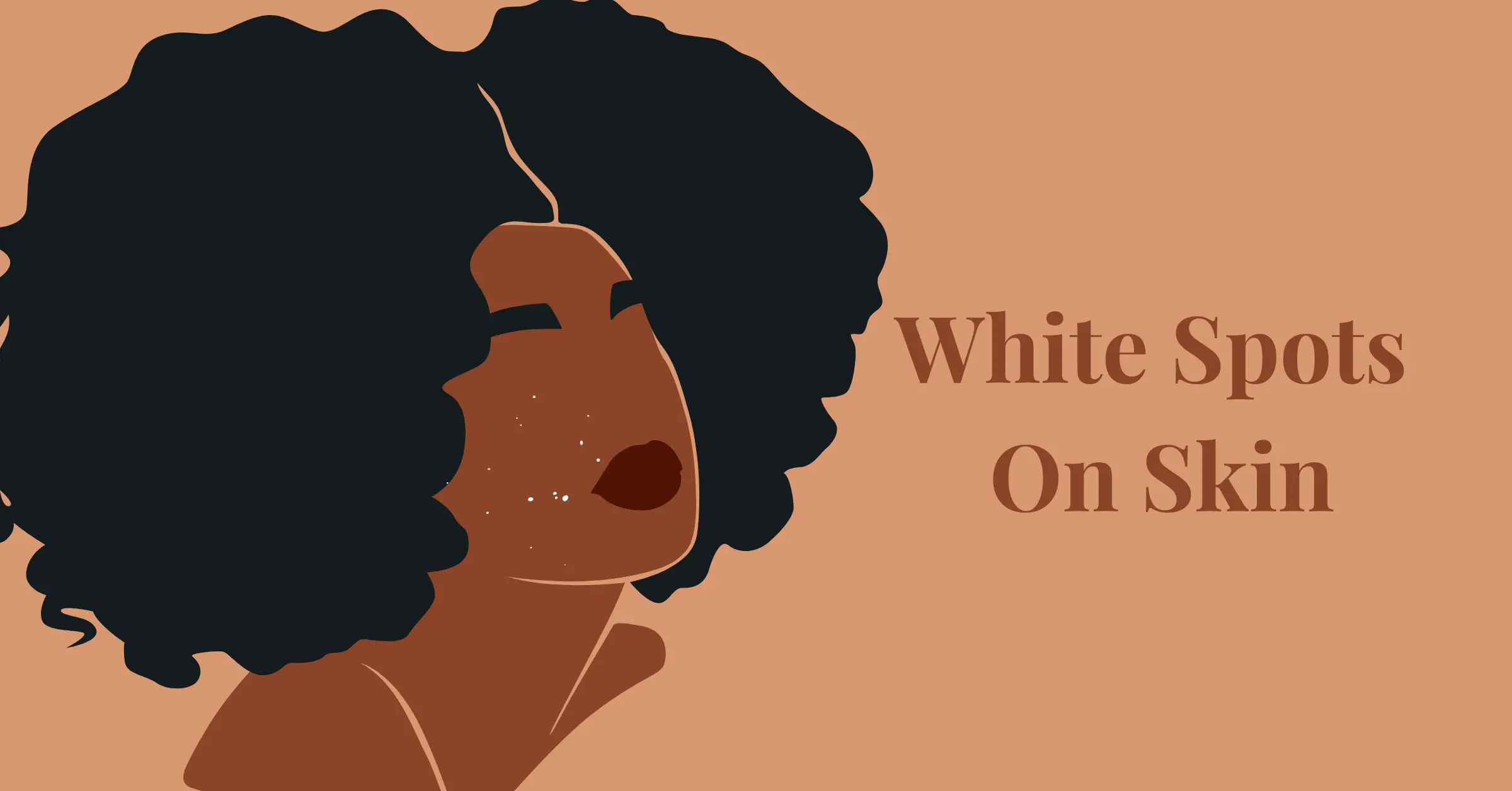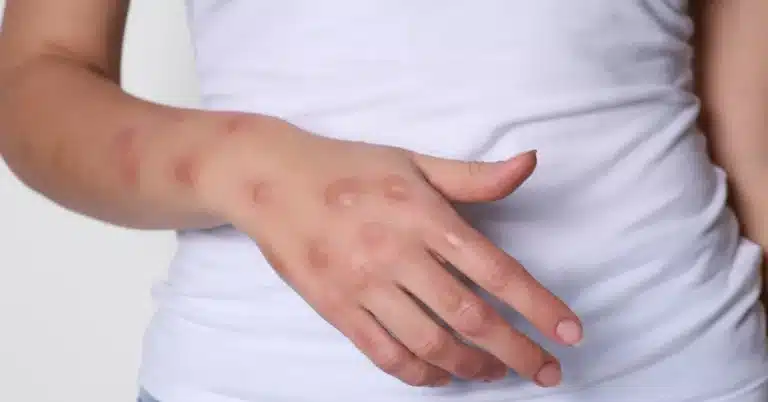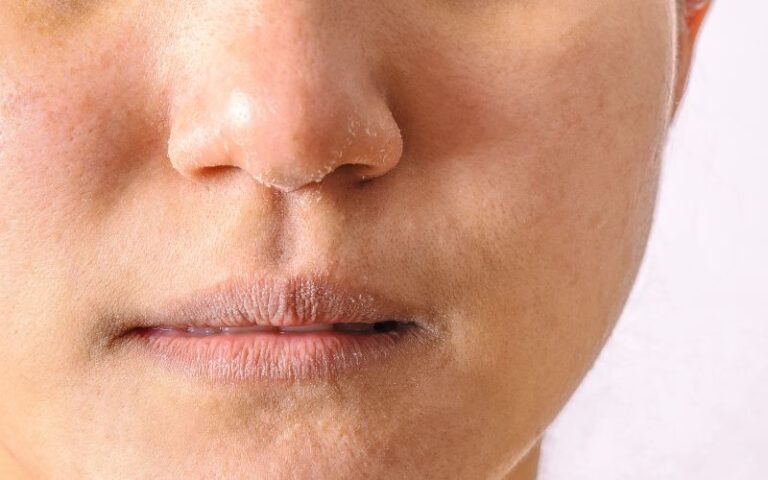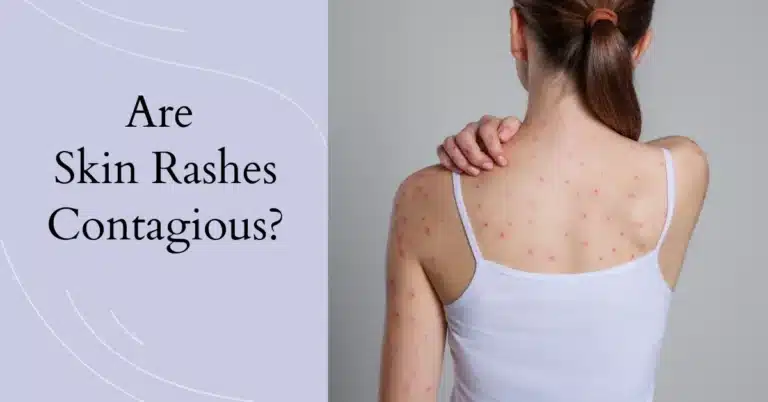White Spots On Skin: Causes, Symptoms, And Treatment Options

Seeing white spots on skin or nails may make you freak out and have an emotional breakdown. Most people get all worried and don’t even know what is really causing it. The seriousness of the situation depends on what is causing it. Some spots might go away on their own, but others could be a sign of a serious issue like vitiligo.
There are all kinds of things that can cause white spots on your skin, like fungal infections, eczema, or even just a lack of vitamins. But don’t trip here, we will break down what is causing those spots and whether they are easy to fix or not. Plus, we will hook you up with some natural remedies that might help those spots fade away.
Table Of Contents
Are White Spots On Skin Bad?
In some cases, white spots may be harmless and resolve on their own, such as those caused by a fungal infection called tinea versicolor. However, white spots may also be a symptom of a more serious condition, like vitiligo, an autoimmune disorder that affects skin pigmentation.
White spots are relatively common and affect people of all ages, races, and genders. Vitiligo, for example, affects approximately 1% of the world’s population.
What Causes White Patches On Skin?
When people notice skin discoloration, they often jump to the conclusion that they have vitiligo. But, before concluding anything, it is crucial to ask this question, “Is every white spot vitiligo?”. Not every white spot is vitiligo. White spots on skin can be caused by various skin conditions, and vitiligo is just one of them. Here are some causes.
Fungal Infections
Fungal infections such as tinea versicolor can cause white or light-colored spots on the skin. These spots are caused by an overgrowth of yeast on the skin and are most commonly found on the back, chest, and arms.
Eczema
Eczema, a chronic inflammatory skin condition, can also cause white patches on the skin. These patches may be scaly or itchy and are often accompanied by redness and inflammation.
Sun Exposure
Sometimes, you may experience blotchy white spots on your skin after sun exposure. This condition is called idiopathic guttate hypomelanosis, and small, flat, white spots are the characteristics of this type. This condition is more commonly seen in older adults and can be triggered by sun exposure. It is not harmful or dangerous but can be a cosmetic concern for some people.
Vitiligo
Finally, vitiligo is an autoimmune disorder that causes the loss of skin pigmentation and the appearance of white patches on the skin. This occurs due to the destruction of melanocytes, the cells responsible for producing skin pigment.
Common treatable white patches and Leucoderma (also known as vitiligo) are sometimes confused because they both involve the loss of skin pigmentation. Those two terms refer to different conditions. Yes, vitiligo typically starts with the appearance of small, white spots on skin. But the difference between white spots and vitiligo lies in the underlying cause.
Vitamin Deficiency And White Spots
Sometimes, if you are not getting enough vitamins, you might see some white spots on your skin. For example, if you are low on vitamin D or calcium, you might end up with a condition called hypoparathyroidism, which can cause those white spots to pop up. And if you are running low on vitamin B12, you might end up with pernicious anemia, which can cause pale or white patches to show up on your skin.
Fret not! Vitamin deficiencies are not the only reason why you might see those white spots. If you are tripping about it, hit up a doctor to get a proper diagnosis and treatment plan.
Some Other Causes For White Patches On Skin
There is a condition called pityriasis alba. It is a type of eczema that can make your skin look all scaly and patchy, either white or pinkish. And then, there is another condition called idiopathic guttate hypomelanosis. It may cause small white spots on your skin, especially if you are aged.
Lastly, there is post-inflammatory hypopigmentation. This happens when you have had some kind of inflammation or injury to your skin, and the area affected ends up losing its pigmentation and turning white.
How Do You Treat White Spots Naturally?
Whether or not white spots fade or are easy to cure depends on the underlying cause of the spots. In some cases, such as post-inflammatory hypopigmentation, the spots may fade over time as the skin heals. However, in other cases, such as vitiligo, the white spots may persist or even spread over time.
Some conditions may be easily treated with topical creams or other medications, while others may require more extensive treatment, such as light therapy or surgery.
Home Remedies For White Patches On Skin
We have got your back with some useful home remedies that might just do the right trick.
First up is coconut oil – people swear by this miracle ingredient for all kinds of things, and it might just work wonders on those spots. Just apply a little bit of the oil on the area and see if it helps.
Another solid option is aloe vera gel – this is legit amazing for calming down irritated skin and might even help fade those annoying white spots. Just lather on some fresh gel to the affected area and let it do its thing.
Now, if you want to go all-natural, you can try turmeric. This magical spice has been used in Ayurvedic medicine for centuries, and some people claim it can cure white spots on skin. Mix some turmeric powder with water or oil to make a paste and apply it to the affected area.
And here are a few more home remedies that may help with white spots on skin:
- Apple Cider Vinegar: Mix equal parts water and apple cider vinegar and apply the mixture to the affected area with a cotton ball. Let it stay on your skin for a few minutes before rinsing off.
- Papaya: Mash up some ripe papaya and apply it to the affected area. Let the paste sit for 20 minutes before rinsing off.
- Red Onion: Blend a red onion and apply the juice to the affected area with a cotton ball. Let the juice sit for 10-15 minutes before rinsing off.
- Ginger: Grate some fresh ginger and apply the juice to the affected area. Let this ingredient sit for 15-20 minutes before rinsing off.
And speaking of Ayurvedic medicine, there are plenty of other herbs and remedies that may help with white spots. Some popular options include neem leaves, ginkgo biloba, and red clay.
Remember, these home remedies may not work for everyone, and the results may vary based on the exact cause. So, it is important to consult a doc if you have any serious symptoms or pain points.
What Is The Best Medicine For White Spots?
If you got a fungal infection messing with your skin, your derm might hook you up with some cream or pills. But, if it is vitiligo, then you know the deal – there is no cure for that. But don’t trip because there are some treatments like corticosteroids, calcineurin inhibitors, or phototherapy that may help even out your skin tone.
Eczema and psoriasis are chronic inflammatory skin conditions that can be treated by topical corticosteroids, moisturizers, and lifestyle modifications. For pityriasis alba, the treatment involves the use of moisturizers and topical corticosteroids.
A study found that vitamin D supplementation, with other treatments, may help improve the repigmentation of white spots in vitiligo patients. Also, vitamin E, an antioxidant, can help protect and repair the skin. However, more research is needed to find its effectiveness as a treatment for white spots specifically.
Some other warriors are vitamin B12 (its deficiency may lead to skin discoloration), zinc (essential for skin health and may help with conditions such as eczema and psoriasis), and omega-3 fatty acids (reduce skin inflammation and improve its health).
Before taking any supplements or vitamins, it is essential to get suggestions from a healthcare professional to ensure they are safe and appropriate for you.
A Word Of Caution
It is important to seek professional medical advice before attempting to self-diagnose or treat any skin condition. Some skin conditions, including those that present as white spots on skin, can be symptoms of serious underlying conditions that require prompt medical attention. Additionally, using natural remedies or over-the-counter treatments without proper medical guidance can sometimes worsen the condition or cause further harm.
FAQs
Q: Are all white spots cancerous?
A: No! Still, some people believe all white skin spots are cancerous. Even though some types of skin cancer may present as white or pale spots on the skin, in most cases, the causes of mild depigmentation might be basic skin conditions.
Q: Do White Spots Spread?
A: Whether white patches spread or not depends on the underlying cause. If tinea versicolor is the case, the white pigmentation may spread to other areas of the skin if left untreated. In vitiligo also, they spread and affect larger areas of the skin over time. However, the extent and rate of spread can vary from person to person.
References
- Vitiligo: https://www.nhs.uk/conditions/vitiligo/#:~:text=Vitiligo%20is%20a%20long%2Dterm,hands%2C%20and%20in%20skin%20creases.
- What are these white spots on my skin?: https://www.medicalnewstoday.com/articles/319887
- What’s Causing Spots on My Skin and How Can I Treat Them?: https://www.healthline.com/health/skin-disorders/white-spots-on-skin
- What Are the White Spots on My Skin?: https://www.wederm.com/2021/04/27/what-are-the-white-spots-on-my-skin/
- Why Do I Get White Spots on My Skin From the Sun?:https://health.clevelandclinic.org/white-spots-on-skin-from-sun/





